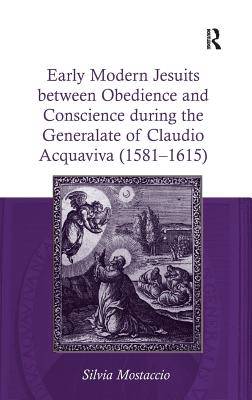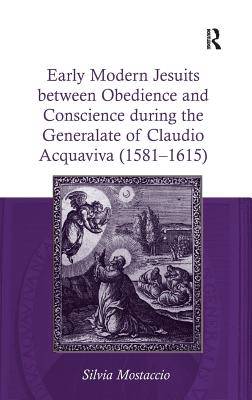
- Afhalen na 1 uur in een winkel met voorraad
- Gratis thuislevering in België vanaf € 30
- Ruim aanbod met 7 miljoen producten
- Afhalen na 1 uur in een winkel met voorraad
- Gratis thuislevering in België vanaf € 30
- Ruim aanbod met 7 miljoen producten
Zoeken
Early Modern Jesuits between Obedience and Conscience during the Generalate of Claudio Acquaviva (1581-1615)
Catholic Church
Hardcover | Engels
€ 343,45
+ 686 punten
Omschrijving
The Society of Jesus was founded on a principal of strict obedience to papal authority, yet the turbulent political circumstances in which they operated inevitably brought them into conflict with the Catholic hierarchy. In order to better understand and contextualise the concept of obedience from a theological and practical perspective, this book examines the Jesuits of south-western Europe during the thirty-year generalate of Claudio Acquaviva (1581-1615), a challenging time for the Jesuits, during which their very system of government was called into doubt.
Specificaties
Betrokkenen
- Auteur(s):
- Uitgeverij:
Inhoud
- Aantal bladzijden:
- 218
- Taal:
- Engels
Eigenschappen
- Productcode (EAN):
- 9781409457060
- Verschijningsdatum:
- 16/07/2014
- Uitvoering:
- Hardcover
- Formaat:
- Genaaid
- Afmetingen:
- 156 mm x 234 mm
- Gewicht:
- 489 g

Alleen bij Standaard Boekhandel
+ 686 punten op je klantenkaart van Standaard Boekhandel
Beoordelingen
We publiceren alleen reviews die voldoen aan de voorwaarden voor reviews. Bekijk onze voorwaarden voor reviews.








